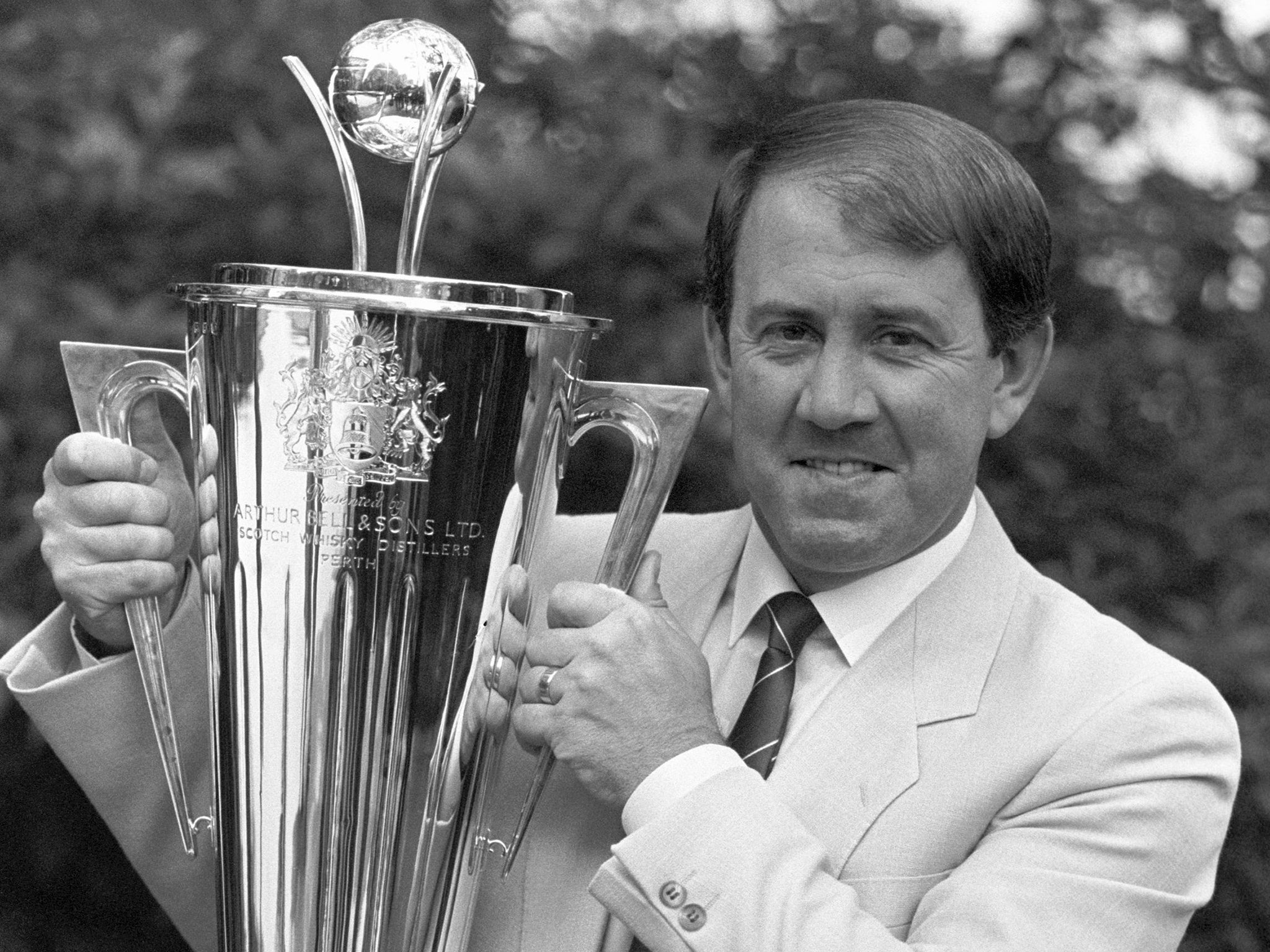Fergie likes to think he broke Liverpool’s monopoly – well, Kendall got there first
The transformation under Kendall was the more astonishing since it followed almost three seasons of nothingness

So there I was in the kitchen at another party, plotting the downfall of Margaret Thatcher, planning the next rally to free Nelson Mandela, and arguing the toss about football. It was 1985, punk had long given way to the New Romantics, Sir Alex Ferguson was still the manager of Aberdeen and the bloke next to me was high on beer and Everton.
It was quite possibly the first time the word Everton had been heard in the north London suburb of Crouch End. Out of the blue, as it were, Scouse pride was suddenly no longer the preserve of Koppites. Here was a rather rotund, unshaven son of Liverpool preaching the gospel according to Howard Kendall.
Between swigs, he would purr over Kevin Sheedy’s left foot, Peter Reid’s dry wizardry and Paul Bracewell’s industry. They were, he said, the new holy trinity: as good as Kendall, Ball and Harvey. Kevin Ratcliffe was the subject of a 15-minute soliloquy, quicker than Carl Lewis, apparently. Half an hour into the Neville Southall eulogy, there was no one left in the room. Matey-boy was still droning on, best keeper in the world, blah, blah, blah.
It seems to me this was Howard Kendall’s greatest achievement, returning to the Everton diaspora a sense of pride and identity. As a player, Kendall knew what it was to be at the vanguard of the game. He had, of course, joined Everton in 1967 ahead of Liverpool, Harry Catterick nicking him from under the nose of Bill Shankly for a hefty £80,000. The championship success in 1970 reasserted the club’s pre-Shankly hegemony on Merseyside when Everton conformed to the “big club” label so treasured by fans.
This was not so when he returned as manager. Liverpool had altered the landscape not only of a city but a nation. The Everton support had suffered more than a decade of emasculation, and then one cold night in January 1984, Adrian “Inchy” Heath poached an equaliser late in a League Cup quarter-final at Oxford to change the world.
Ferguson likes to boast that he came south to Manchester United from Pittodrie to smash the Liverpool monopoly. I have always felt this disrespectful to Kendall, who clearly got there first with a team arguably as pleasing on the eye as any managed by Fergie.
Yes, Everton were that good, propelled by a beautifully balanced quartet across the middle in Sheedy, a Liverpool reclamation project, Reid, a gem of a player despite knackered legs, the combative Bracewell and a flier down the right, Trevor Steven.
Up front, Andy Gray was brave and quick and, beside him, Heath, a darting, nimble presence, not to mention the contributions of Graeme Sharp and, for an all-too brief period, Gary Lineker. At the back, little got past Ratcliffe and Derek Mountfield, and when they were pierced, there was always Big Nev to bar the route to goal.
In fairytale fashion, the transformation under Kendall was the more astonishing since it followed almost three seasons of nothingness after his appointment in 1981. Indeed, “Kendall Out” posters were sent with the Christmas cards in 1983 as the fans lost patience with the man they worshipped as a player, Heath’s goal proving the catalyst to the alchemy that none foresaw.
Everton reached the final of both domestic cup competitions that year, claiming the FA Cup against Watford, the first jug raised by the club since Kendall won the title with Everton 14 years previously. Within 18 months, Everton were league champions for the eighth time, eclipsing Liverpool by 13 points, and holders of a European trophy, the Cup-Winners’ Cup, after a dominant victory over Rapid Vienna. No wonder matey-boy was swaggering around the capital’s outer precincts, oozing a sense of entitlement he never thought would be his in the epoch of Shankly and Bob Paisley.
The five-year European ban on English clubs imposed after the Heysel disaster in 1985 denied Kendall a tilt at the European Cup his creation deserved. Inadvertantly, Liverpool had spiked Everton’s party again. We can see from the outpouring of affection and respect that Kendall was a coach of significance, who understood instinctively the power and importance of man-management. His players loved him, believed in him and played for him.
After claiming a second title in 1987, the lure of European competition persuaded Kendall to accept a posting in Bilbao. The spell was broken. Everton began the long slide into the margins and Kendall would never again recreate the magic he touched at Goodison Park.
As for my Scouse friend, nothing much more has been heard and Crouch End is once again the neighbourhood of Arsenal and Spurs.
Join our commenting forum
Join thought-provoking conversations, follow other Independent readers and see their replies
Comments
Bookmark popover
Removed from bookmarks